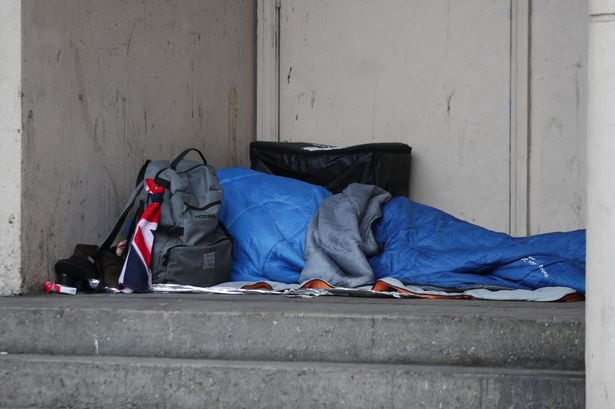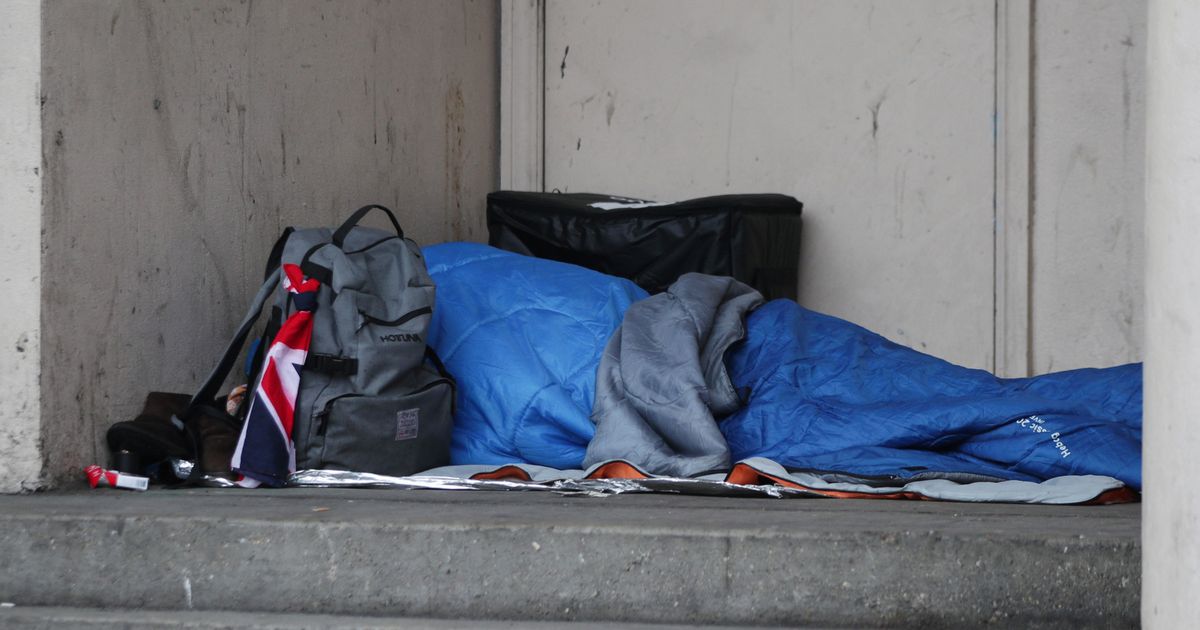A new census has revealed the problem is far worse than previously thought (Image: PA)
(Image: PA)
Hundreds of homeless women are sleeping rough in Bristol, with the problem 23 times worse than government figures suggest, a new census has found
Carried out by charities One25, Shelter, The Nelson Trust and St Mungo’s, together with Bristol City Council, the census found there were 349 women sleeping rough in the city, significantly more than the 15 recorded in a government snapshot.
Charity leaders said the new census was a wake up call to the scale of the problem of female homelessness. Jennifer Riley, chief executive of Bristol women’s charity One25, said: “The Bristol women’s census reveals a stark reality: hundreds of women in our city are experiencing homelessness.
“This data is a call to action – for fair funding and gender-informed services. Together, we can do more to ensure that every woman has a safe place to stay.”
One woman who spoke to the census anonymously gave a sobering account of the terrifying reality of sleeping rough as a female. “I feel vulnerable,” she said.
“You have to rely on people who you can’t trust and don’t feel safe with. I don’t have the money to go into restaurants for shelter and have to put myself at risk and do things I don’t want to so I can get shelter for the night.”
The census was carried out in 2024, aiming to account for women who slept in hidden places or who kept moving overnight in a bid to avoid harm. These women were typically missed in official counting processes, according to Laura Shovlin, Regional Head at homeless charity St Mungo’s.
“The numbers show there are significant amounts of women sleeping on the streets, with many more hidden from view meaning they are not included in official statistics,” Ms Shovlin added.
“Rough sleeping is dangerous for everyone, but women on the streets – whether hidden or not – face frightening levels of sexual harassment, abuse and violence.”
The census used a two-part method to try to get as clear a picture as possible of the scale of female homelessness. For one week, the council and their charity partners visited places where women were known to sleep rough, talked to them, and recorded them in the census.
The second part of the census, dubbed “local insights meetings”, combined records from a range of local services including healthcare providers and domestic abuse services. The two-pronged approach allowed the census to record the data of hundreds of women who had been missed by the government snapshot.
In Bristol, the local insights meetings identified 349 women who had contact with trusted organisations over a three-month period. Duplicates were removed, so any women who had already been identified in the direct census were not counted twice.
A nationwide census found that levels of female homelessness around the country were about ten times higher than government estimates. Bristol City Council deputy leader Heather Mack said the data collected by the census would help the council’s efforts to combat the scourge of homelessness in the city.
Cllr Mack added: “This is an important step towards addressing gender disparities in our homelessness services and housing provision. It is really important to understand people’s first hand experiences and use this information to help inform and improve our services.”
